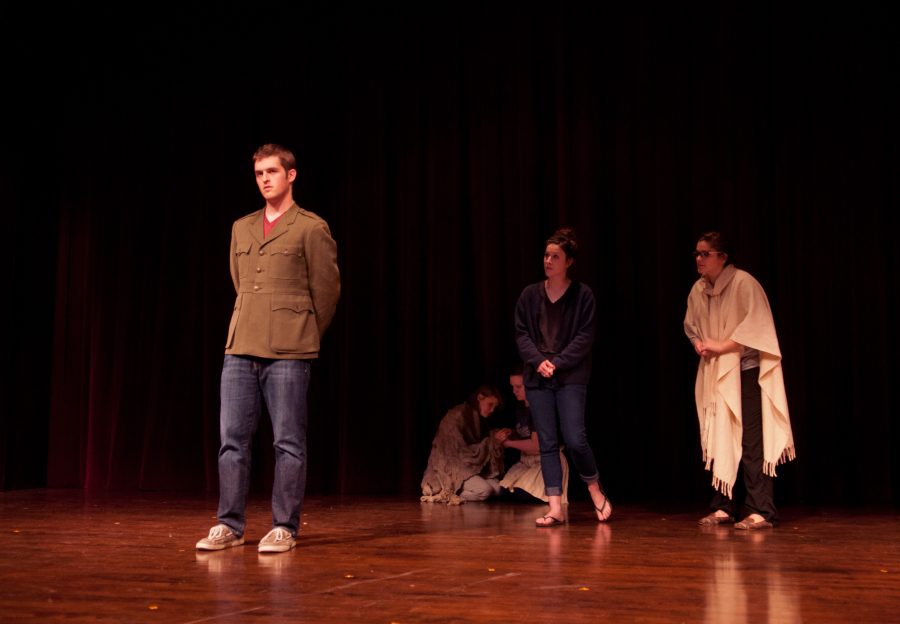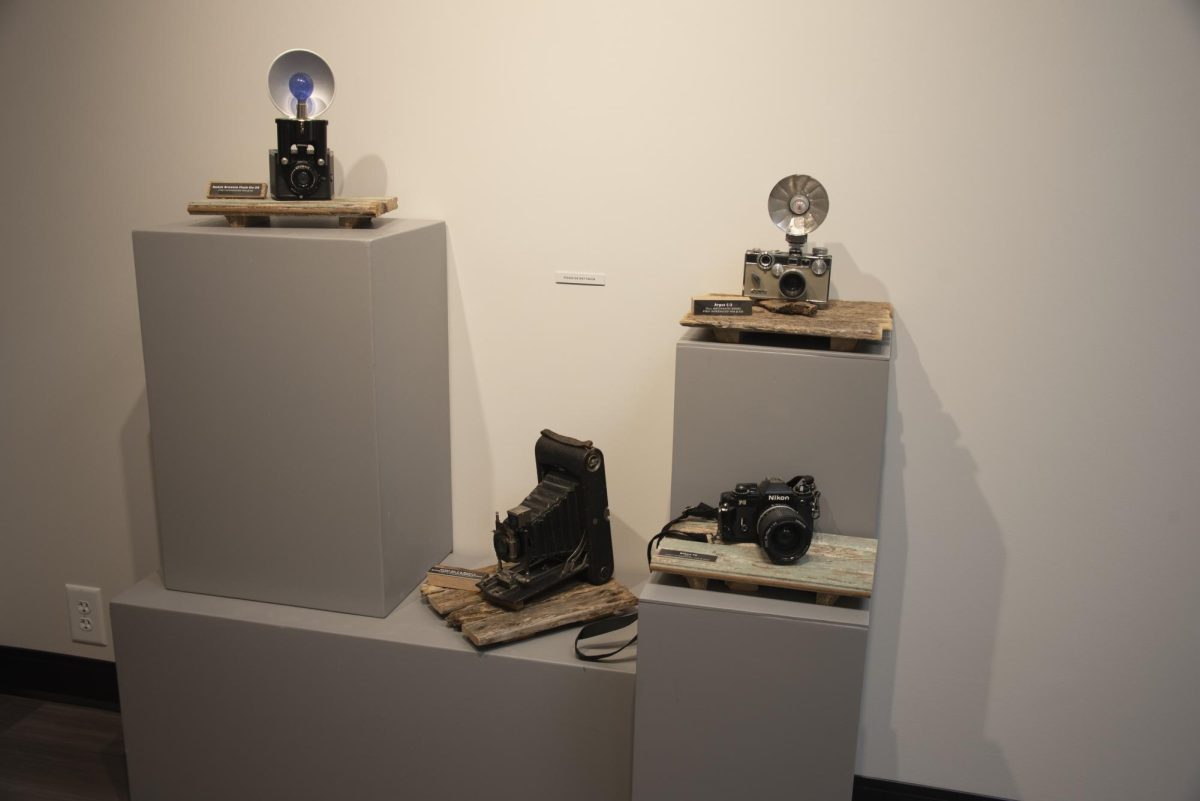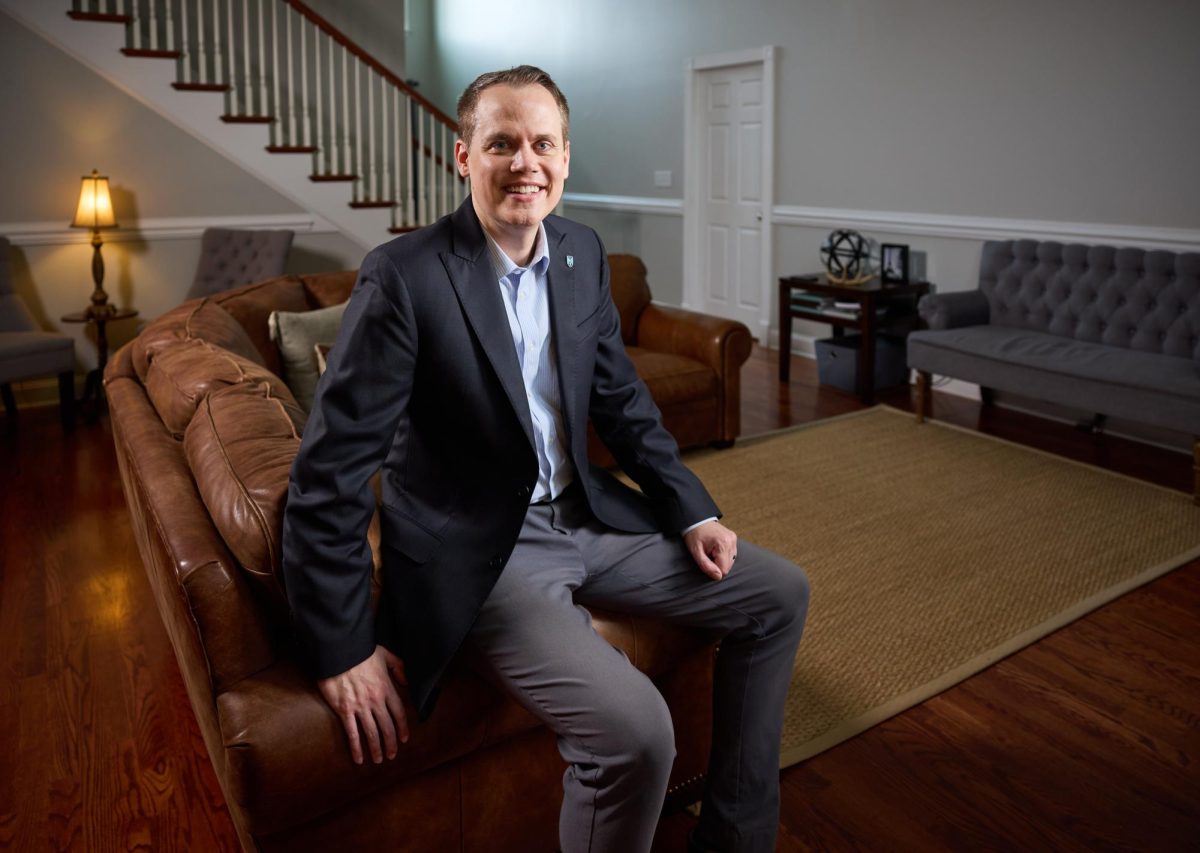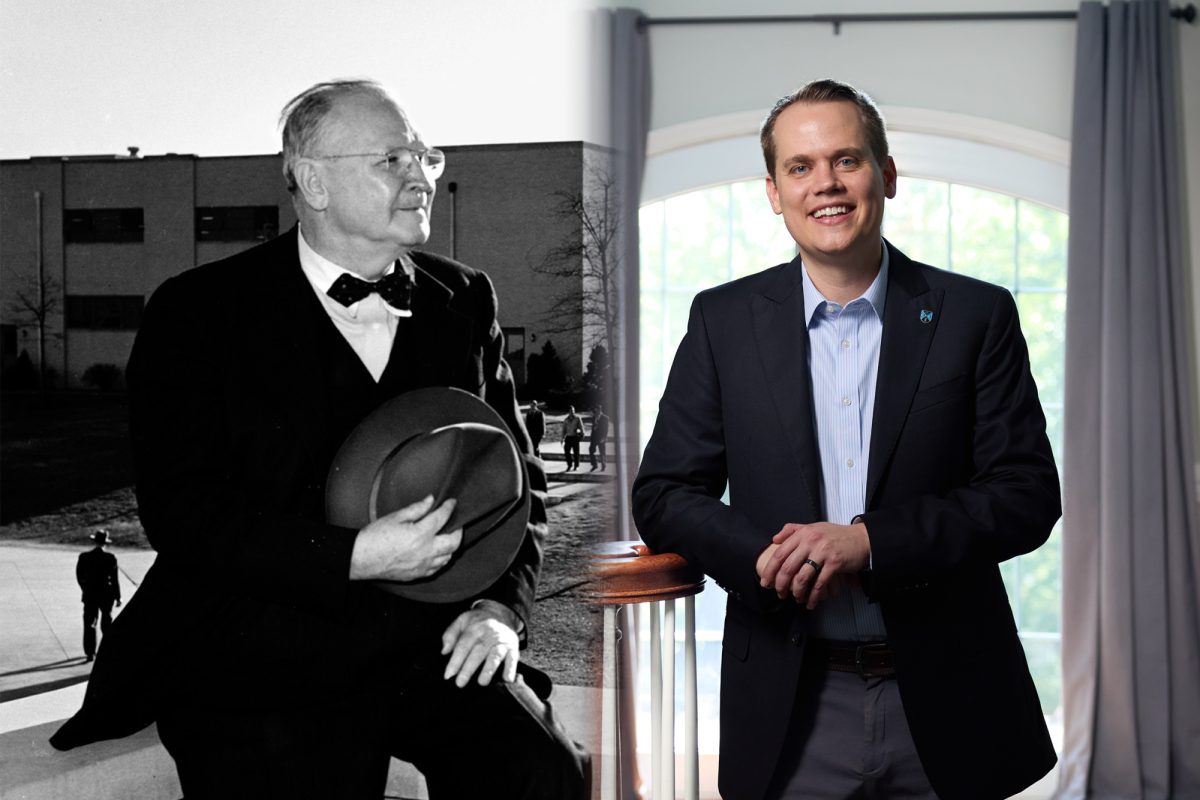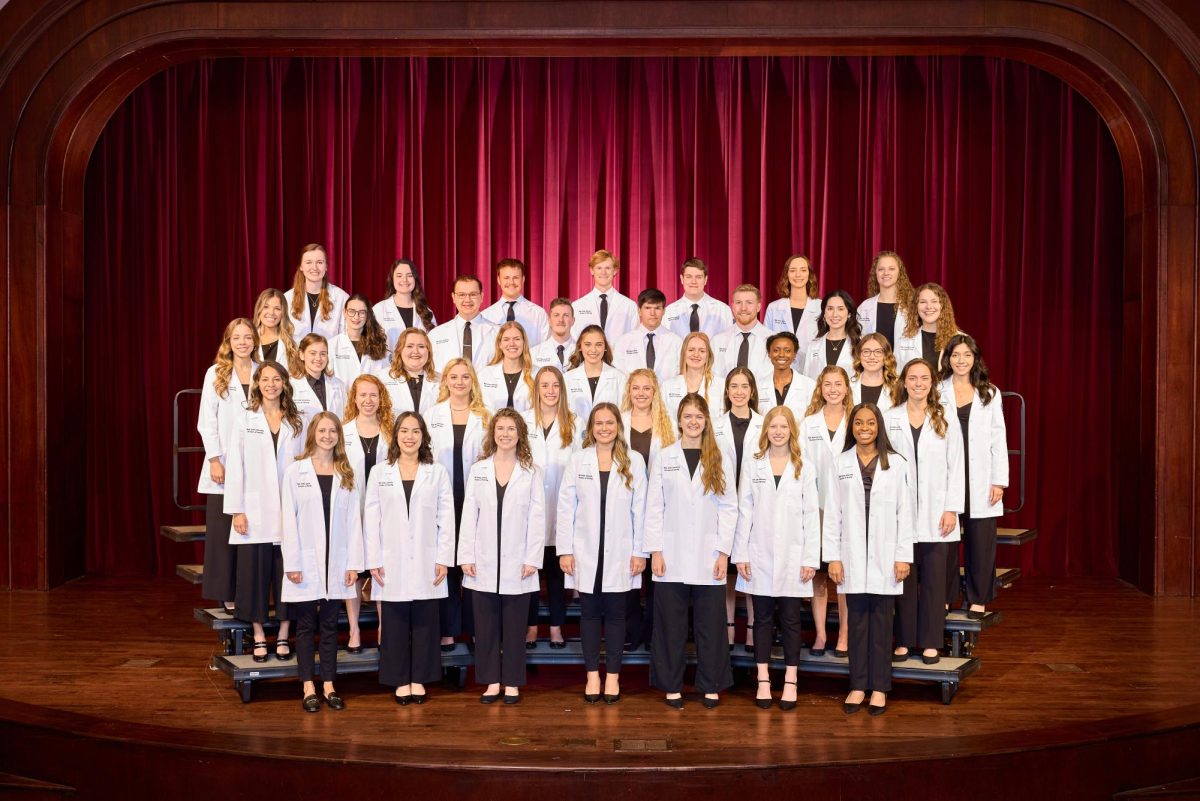When you attend a performance, you typically go with expectations of the plot. But with Tabula Rasa, audience members won’t be able to come with knowledge of a storyline.
Janie Mayer will present an original play, Tabula Rasa, in fulfillment of her senior directing requirement at 7:30 p.m. on both April 18 and 19 in Stratton Hall.
“Most students have a play they dream about directing their senior year,” said Mayer, a senior theatre arts major, in reference to choosing what play she would direct for her senior performance. “But I was never that way. I definitely came in as a blank slate,” she said.
Little did Mayer know that this attitude of openness would prepare her perfectly for Tabula Rasa, a Latin phrase meaning “blank slate,” and a very fitting name for this unique production.
For this play, after consultation with faculty, Mayer decided to throw out the script and try something totally new: creating an entire play from scratch. Mayer said she was enthralled by the idea, though she knew it would be challenging. On the one hand, there’s freedom in not having a script, but on the other, there’s a certain stress that comes with having to build something out of nothing.
One of the first big challenges Mayer faced was casting: how do you choose actors and actresses for characters who don’t exist? Rather than selecting cast members based on a list of qualities that match some character, Mayer selected her performers based on their flexibility, ability to collaborate well with others, and their ability to play multiple characters. (Some cast members will play up to four characters.) In the end, Mayer settled on eight cast members: two sophomores, Micah Moeller and Rachel Madeira; two juniors, Nathan Young and Meredith Hamilton; two seniors, Meagan Ingersoll and Ben Nicholas; and two graduate students, Jessica Bowers and Anna Brown.
“They had to agree to do all these crazy things, without necessarily knowing why they were doing them,” Mayer said.
Some of these crazy things included acting exercises, improvisational games and other such activities aimed at creating a story. “Rehearsals” (it’s difficult to rehearse something that hasn’t been written yet) began weeks in advance and were more like brainstorming sessions. Mayer and her crew created dozens of ideas along the way.
Young, a communication major and cast member, described one exercise where the cast listened to a recording of rain sound effects. After hearing the sounds, the cast members tried to create scenes and characters based on feelings and thoughts caused by the sounds.
Through this process, Mayer became more than a director, but also “master editor,” as she described herself. Once a rough idea of the story was created through rehearsals, Mayer sifted through all the ideas and pared the play down to an outline.
Even now there is no set script for performance. But it won’t be total improvisation, either. Mayer said the performers’ familiarity with their lines will be closer to that of someone giving an extemporaneous speech.
Mayer and her cast are keeping a fairly tight lip on what all this collaboration has come together to create. She did say that the play covers a variety of scenes from different time periods.
But for the most part, audience members will have to come in to the play “tabula rasa,” open and ready to experience something totally new.
Tickets for Tabula Rasa are now on sale and can be purchased online or at Programs & Productions.

























































